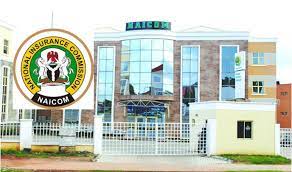
By Felix Oboagwina
As last year drew to a close, the 58 insurance firms in Nigeria under the umbrella of the National Insurance Commission (NAICOM) served notice that minimum Third-Party subscription for motor vehicles would no longer cost N5,000 but N15,000 beginning from this New Year. Some years ago, they charged N1,000 as minimum payable on motor insurance.
Contrast with the current debate on the social media about MultiChoice serving a notice of increase on GOtv and DSTV subscribers. The increase ranges from 16 per cent to 22 per cent. Despite this, people are shouting BLUE MURDER! Subscribers are calling for the cable TV firm to be skinned or beheaded, saying MultiChoice would not dare such in its home headquarters, South Africa. Last time MultiChoice tried it, the matter went as far as the National Assembly.

This same National Assembly now looks the other way with the new insurance premiums. What is the cable TV’s 22 percent increment, compared to 200 percent by NAICOM? What insurers have done is brazen and indecent! To increase the minimum Third-Party motor insurance to 300 percent is not only unreasonable it is draconian. It is an act of impunity. It is extortionist, insensitive, inconsiderate, untimely, ill-advised, selfish and self-serving. It panders to the unbridled greed of industry operators. The brazenness is insulting. In short, the hike is highly inconsiderate, especially in this era of scarce and expensive fuel and an economy still reeling from the effects of the COVID-19 pandemic.
Yet insurers blame the N10,000 increment on “current economic realities.” Not acceptable!
There are an estimated 13 million vehicles in Nigeria, of which only some three million have been captured in the insurance net. Instead of seeking ways to lure the noncompliant 10 million vehicle-owners to buy into insurance, insurers want to milk conformists to death. Where will patrons accommodate this increase, in a country with a minimum wage of N30,000?
Of course, those earning minimum wage do not own vehicles. However, they use transportation. When the prices of vehicle inputs like fuel, tolls and spare parts become costlier, vehicle owners simply transfer them to commuters through higher fares. Adding a costlier insurance to the motor value chain amounts to subjecting vehicle owners to double, nay multiple, jeopardy, with the spiral effect translating to higher transport fares and costlier freighting fees.
Imagine if other elements in the motor driving particulars too decide to follow suit. It means that drivers and owners would pay three times on:
- Vehicle Licence
- Road Worthiness
- Hackney Permit
- Drivers Licence
- Customs Papers
- Tinted Glass Permits (which the Police Force deserves kudos for waiving) and other council and business locations tickets.
Someone said, “Insurance is the sale of promises. The ‘customer’ pays money now; the insurer promises to pay money in the future if certain events occur. Sometimes, the promise will not be tested for decades.” Sometimes the promise will not be even tested forever! In fact, only about 15 percent insurance subscribers ever bother to make accident claims. The greater proportion of claimants comes from corporate policyholders. Thus, the insurance firm is the greater beneficiary in the relationship because the individual motor policyholder would just lick his wound and settle the bills jejely.
Everyone knows that the Third-Party insurance on vehicles is just to fulfil all righteousness –a legal requirement with which transport owners must comply. In Nigeria here, they refer to it as, “Let-My-People-Go Insurance,” or “Let-Me-Pass Insurance.” Third-Party is the paper drivers obtain just to satisfy the police. That’s all!
In case of accident or damage to Third-Party vehicles, insurance customers hardly bother to engage themselves in the stress of filing claims. The red tape and bureaucracy is so organised as to be stressful and time-wasting. Therefore, claimants simply pay from their pockets. Commercial bus and employed drivers are a common sight, kneeling and prostrating on the ground for the mercy of those whose cars they bash. Hence, the insurance firm reaps from doing NOTHING!
Since owning personal cars for over two decades now, I have been involved in accidents. Not once have I made a single claim! In fact, apart from an Insurance Broker in my church, no one I know has EVER made a claim. Not one! In fact, late last year, someone in my neighbourhood had his SUV crushed by a falling container. The owner of the offending trailer came privately to plead for the victim to accept N7 million for a vehicle worth N12 million. Family members told the victim to thank God for surviving the ordeal and accept the money. That is how we roll.
As of 2019, the Nigerian industry ranked 62nd in the world with $1.64 billion premium. That makes it an industry worth some N1.2 trillion. In 2021, the unaudited Insurance Industry performance in Nigeria showed that insurance firms made a gross income of N630 billion, and posted N238.05 billion as net expenditure. Talk about a fertile cash cow.
Insurers benefit colossally from the statutory laws making vehicle insurance cover mandatory for cars, trucks and motorcycles. The Insurance Act 2003 mandates all motorists to carry the minimum of a Third-Party Motor Insurance Policy. Section 68 of the 2003 Insurance Act stipulates:
“No person shall use or cause or permit any other person to use a motor vehicle on a road unless a liability which he may thereby incur in respect of damage to the property of third parties is insured with an insurer registered under this Act.”
The law varies in the US, where most states, require vehicles to carry motor insurance. However, there are two US states where it is not mandatory –Virginia and New Hampshire. Countries like New Zealand, Saudi Arabia and Manila do not require a compulsory insurance for vehicles to ply the roads.
It is compulsory in Britain too, hence, we see that mandatory insurance is part of our colonial heritage. This colonial heritage must go now. As our colonial hangover, motor insurance is being weaponised for inordinate extortion, unbridled greed and excessive profiteering by insurers operating under a NAICOM cartel.
Time has come to break up this cartel. With NAICOM calling the shots, it amounts to a monopoly, which should not hold in a free enterprise and deregulated economy. NAICOM is operating like a cartel. We consumers reject being milked by this privileged cartel. Nigeria should make insurance OPTIONAL. This Ninth National Assembly or the coming Tenth National Assembly should make this a matter of urgent public importance. Legislators should change the law to deregulate insurance or scrap this motor insurance law. The NASS should tweak the Insurance Act. Expunge, reframe, rephrase, rewrite restructure or remove that part of the law that makes it compulsory for vehicles to carry an insurance paper to travel the roads. If vehicles MUST be insured, the law should permit no more than a marginal increase, going forward. Motor insurance premium should take a cue from MultiChoice –no increment should be over 20 percent.
Legislators need to make a law to make motor insurance deregulated, optional or non-exploitative. They would be writing their name in gold.
- Oboagwina is an author and journalist and may be reached via: foboagwina@gmail.com)




GIPHY App Key not set. Please check settings